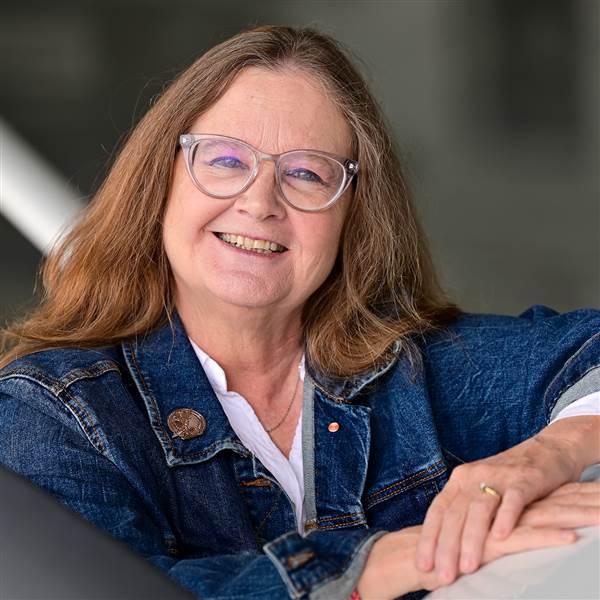Flying for a good cause
In truth, she purposefully waited until her two children were "at an age when they were pretty much raised" before learning to fly. Weber, 51, recalls her 1999 introductory flight lesson in a Cessna 172 with a grin: "We did straight-and-level flight, standard-rate turns--and unusual attitudes." She asked her flight instructor, "Can we do that again?"
Flying a few times a week, Weber passed the private pilot checkride in 2000 and purchased a 1998 Cessna 182 six months later. "I was flying a lot, and it was something [husband] Dave and I knew we were going to do for an extended period of time," she says. They leased the 182 to the flight school at Frederick Municipal Airport. She did indeed fly often, taking her family on weekend trips or flying her son the 51 nautical miles between Frederick and Front Royal, Virginia, where he was a boarding student at Randolph-Macon Academy.
| Name: Jill M. Weber Age: 51 Certificates: Single-engine land, instrument and seaplane ratings Flight time: 430 hours Aircraft flown: Cessna 172, 182 Home airport: Frederick Municipal (FDK), Frederick, Maryland |
Weber learned about Angel Flight during instrument training. The idea that she could be a part of this charitable effort, in which instrument-rated pilots volunteer their services to provide free air transportation to medical patients with financial need, was one of the forces that kept her motivated and drove her to complete the rating. (Organizations like Angel Flight generally require mission pilots to be instrument-rated and have at least 300 flight hours.)
Weber joined Angel Flight East and began flying medical missions with the help of her former flight instructor, Dean Durbin. It was Durbin who first came up with the idea of forming a separate nonprofit entity solely to conduct charitable medical flights, she says. The idea appealed to Weber, and she, Durbin, and a silent partner--another local pilot with an aircraft based at Frederick--put together a business plan. They have filed all of the paperwork to form a nonprofit entity and are awaiting a final decision on their tax-exempt status from the Internal Revenue Service. When that's in hand, Weber says, they'll "go knocking on doors, soliciting funds from businesses in the area and anybody who will listen to us." The purchase of a twin-engine aircraft with deicing equipment is in their long-range business plan, she says. Pilots are prohibited from flying most general aviation aircraft into known icing conditions, which leads to numerous canceled mission flights, she notes.
In the meantime, Weber and Durbin continue to fly medical transports for Angel Flight East. Some memorable ones include carrying a blind diabetic patient from Tangier Island in Virginia--an isolated community whose only access to the mainland is via air or boat--to a nearby hospital for dialysis treatments. "The trip itself from Tangier to the hospital is 12 minutes," Weber laughs, "but the flight to Tangier from Frederick is 90 minutes!" Then there are the more complicated assignments. Weber describes an upcoming flight originating in Massachusetts with legs to Pennsylvania, West Virginia, and Tennessee. Such missions involve a tremendous amount of coordination, but "when you get 'em done, you get a nice sense of satisfaction out of it, and the people are so grateful."
Jill W. Tallman is assistant editor of AOPA Flight Training magazine. A private pilot since 2001, she has approximately 300 hours.



